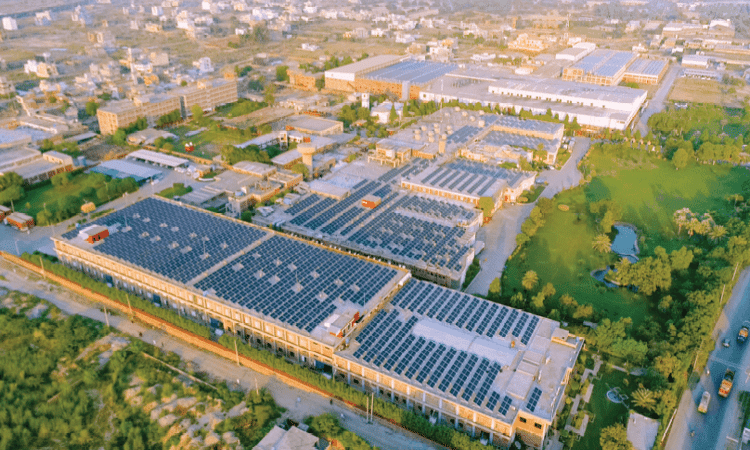The topic of solar energy has been abuzz lately, especially with the recent speculations around changes in net metering and potential new taxes on solar products. These speculations raised quite a few eyebrows, but Prime Minister Shehbaz Sharif has stepped in to clarify that the federal government will not impose additional duties on solar panels. This move aims to ensure that low-cost energy remains accessible to every citizen.
Background on Solar Energy Policies in Pakistan
Solar energy in Pakistan has seen significant evolution over the past decade. Initially, the adoption was slow, but with growing awareness and technological advancements, more households and businesses have started embracing this renewable energy source. The government’s policies have played a crucial role in this transition, providing subsidies and incentives to promote solar installations.
Speculated Changes in Net Metering
Net metering has been a cornerstone policy for solar energy users in Pakistan. It allows consumers to sell excess electricity generated by their solar panels back to the grid, effectively reducing their electricity bills. Recently, there were talks about replacing net metering with gross metering, which would measure the total generated electricity without considering the consumption. This change raised concerns among current and potential solar users, fearing reduced financial benefits.
Concerns Over New Taxes on Solar Products
Adding fuel to the fire, there were reports suggesting that new taxes might be imposed on solar products. Such a move would make solar panels and related equipment more expensive, thereby discouraging people from opting for solar energy. The potential financial burden on consumers and the adverse impact on the environment caused widespread anxiety.
Prime Minister Shehbaz Sharif’s Clarification
Amidst the growing concerns, PM Shehbaz Sharif provided much-needed clarity. He reassured the public that the federal government has no plans to impose new duties on solar panels. This statement aims to alleviate fears and encourage more citizens to switch to solar energy, aligning with the government’s vision of sustainable and affordable energy for all.
Government’s Commitment to Affordable Energy
The government’s commitment to promoting low-cost energy is evident through its various policies and initiatives. By ensuring that solar panels remain tax-free, the government is making a significant effort to enhance the accessibility of renewable energy. This move not only benefits individual consumers but also contributes to the overall energy stability of the nation.
Economic Stability and Solar Energy
There’s a strong link between economic stability and the adoption of solar energy. PM Shehbaz Sharif highlighted that the government’s efforts are geared towards putting the national economy on a positive trajectory. By fostering an environment conducive to renewable energy, the government is laying the groundwork for sustainable economic growth.
Promoting Small and Medium Enterprises (SMEs)
SMEs are the backbone of any economy, and Pakistan is no exception. The government recognizes the pivotal role that SMEs play in driving economic growth and job creation. Initiatives to promote and support SMEs, including providing access to affordable energy, are crucial for their development and success.
Withdrawing Privileges from the Elite
Another significant aspect of the government’s economic strategy is the redistribution of resources. By withdrawing privileges from the elite and those exploiting national resources, the government aims to create a more equitable society. This approach ensures that the benefits of economic growth are shared more broadly, reaching every citizen.
Annual Budget 2024-25: Key Takeaways
The annual budget for 2024-25 reflects the government’s priorities and vision. Key takeaways from the budget include a focus on inclusive growth, economic stability, and support for renewable energy. The budget outlines various measures to promote SMEs, enhance infrastructure, and ensure affordable energy for all.
PIA Privatisation: An Overview
The privatisation of Pakistan International Airlines (PIA) has been a long-debated topic. The government is moving ahead swiftly with the privatisation process, with several companies showing interest. The expected outcomes include improved efficiency, reduced financial burdens on the state, and enhanced service quality for passengers.
Sugar Price Stability Measures
Sugar price stability is another area of focus for the government. With sufficient stock available, the government is taking proactive measures to prevent any price hikes. This includes forming a committee to monitor prices and regulate exports, ensuring that the local market remains stable.
Humanitarian Decisions and International Cooperation
In a humanitarian gesture, the federal cabinet approved the transit of a truck carrying spare parts to Afghanistan, highlighting Pakistan’s commitment to international cooperation. Additionally, the signing of an MoU with Saudi Arabia reflects the ongoing efforts to strengthen bilateral relations and collaborate on various fronts.
Committee Extensions and Appointments
The government has also extended the timeframe of an implementation committee on immovable property and approved new appointments, including the Executive Director of the Frequency Allocation Board. These decisions are aimed at ensuring smooth governance and addressing key issues effectively.


